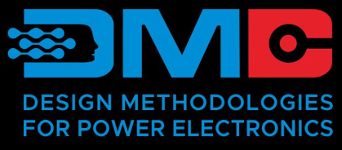
Speaker: Kevin Hermanns, PE-Systems GmbH, Darmstadt, Germany
Date: August 4th, 2022 at 8:00 am ET (2:00 pm CET)
Registration: Here
Abstract: A variety of decisions must be taken during the design process of power electronics. Increasing system complexity due to new semiconductor technologies (SiC, GaN), innovative manufacturing methods and various fields of application make it impossible. For system designers to grasp all variation of possible solutions. The designed system normally fits the requirements but is never the optimal solution. To overcome this, design automation in power electronics is currently evolving from academical examples to industrial applications, solutions and products.
The basis of design automation is the generation, processing and the provision of data, which describes components and systems. The obvious way is to collect component data from each vendor and build up one centralized data base for each software tool, that helps to solve one certain issue during the design process. This way seems not to be the optimal way, because data must be provided for each tool by each component vendor. Additionally, each software tool vendor is responsible to keep the data up to date and will have different requirements on the applied data.
A better way is to use standardization to define a basic data set and to empower component vendors to make their product data available in machine-readable formats. The realization of a standard data format as well as several application examples, improving the design process of power electronics significantly, are presented.
Biography: Kevin Hermanns is founder and managing director of PE-Systems GmbH. PE-Systems offers solutions in the field of design automation for power electronics including automated characterization and device modelling. Before becoming an entrepreneur, Kevin started his professional career at Siemens in the project office of large-scale railway automation projects. Afterwards, he worked as a research associate at the Technical University of Darmstadt in the Power Electronics Department. During this time, his research interests focused mainly on the distortions of high-power converters. He actively contributed to Cigre working group B4.67, which resulted in the technical brochure “AC side harmonics and appropriate limits for VSC HVDC”. He is also an active participant in national and international standardization committees (e.g. IEC and CENELEC). Kevin is chair of the newly formed IEEE Power Electronics Society Technical Committee on Design Methodologies and General Co-Chair of the Design Methodologies Conference. As such, he sees his role as promoting the use of novel design methodologies. In particular, he focuses on the interaction between design tools and test and measurement techniques.
Kevin was born 1984 in Germany. He received his bachelor’s degree in electrical engineering from the Technical University of Braunschweig, Germany and graduated from the same university with a Master of Science in electrical power engineering.
